
The Canary Islands, also known informally as the Canaries, are a Spanish autonomous community and archipelago in Macaronesia in the Atlantic Ocean. At their closest point to the African mainland, they are 100 kilometres west of Morocco. They are the southernmost of the autonomous communities of Spain. The islands have a population of 2.2 million people and are the most populous special territory of the European Union.

The Canarian Coalition is a regionalist, Canarian nationalist political party in Spain operating in the Canary Islands. The party's aim is for greater autonomy for the islands but not independence. It has been labeled as both conservative and liberal. The party governed the Canary Islands from 1993 to 2019.

El Sauzal is a town and a municipality in the northeastern part of the island of Tenerife, Canary Islands, Spain. It is located on the north coast, 12 km west of San Cristóbal de La Laguna, 13 km northeast of La Orotava and 18 km west of the island's capital, Santa Cruz de Tenerife. The TF-5 motorway passes through the municipality. The population is 9,076 (2013) and the area is 18.31 km².

Adán Martín Menis was president of the Canary Islands (Spain) from July 2003 until 2007.

Manuel Mora Morales is a Canarian writer, filmmaker and editor. He completed his studies at the University of La Laguna on the island of Tenerife. He is the president of the Asociación de Editores de Canarias.

Canarian nationalism is a political movement that encourages the national consciousness of the Canarian people. The term includes several ideological trends, ranging from a demand for further autonomy within Spain to the right to self-determination.

Jerónimo Saavedra Acevedo is a Spanish politician. He served as President of the Canary Islands twice from 1982 to 1987, and again from 1991 to 1993.
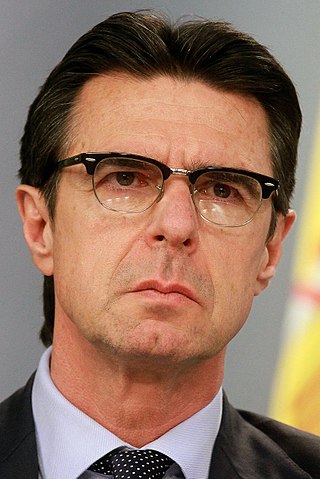
The 2011 Canarian regional election was held on Sunday, 22 May 2011, to elect the 8th Parliament of the Autonomous Community of the Canary Islands. All 60 seats in the Parliament were up for election. The election was held simultaneously with regional elections in twelve other autonomous communities and local elections all throughout Spain.
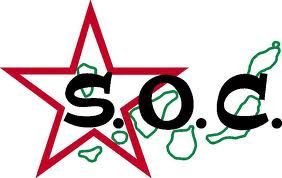
Sindicato Obrero Canario was a nationalist trade union movement in the Canary Islands. It was founded as an underground movement in 1976, under the leadership of the Canarian Communist Party (Provisional). The union was legalized in 1977.

Alternativa Popular Canaria is a Canarian nationalist leftist party founded in 2002, and part of the Movimiento de Liberación Nacional Canario (MLNC). Its creation was spurred by the youth organisation Azarug and several municipal parties, as well as members of various leftist nationalist parties.
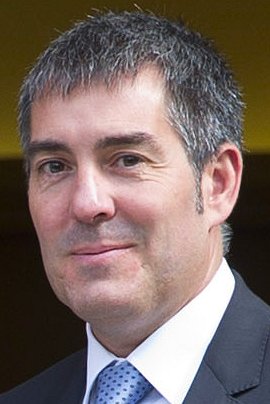
The 2015 Canarian regional election was held on Sunday, 24 May 2015, to elect the 9th Parliament of the Autonomous Community of the Canary Islands. All 60 seats in the Parliament were up for election. The election was held simultaneously with regional elections in twelve other autonomous communities and local elections all throughout Spain.
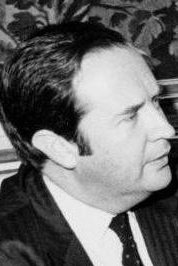
The 1983 Canarian regional election was held on Sunday, 8 May 1983, to elect the 1st Parliament of the Autonomous Community of the Canary Islands. All 60 seats in the Parliament were up for election. The election was held simultaneously with regional elections in twelve other autonomous communities and local elections all throughout Spain.
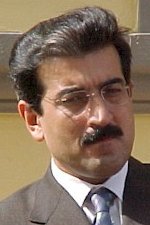
The 1999 Canarian regional election was held on Sunday, 13 June 1999, to elect the 5th Parliament of the Autonomous Community of the Canary Islands. All 60 seats in the Parliament were up for election. The election was held simultaneously with regional elections in twelve other autonomous communities and local elections all throughout Spain, as well as the 1999 European Parliament election.

The 2007 Canarian regional election was held on Sunday, 27 May 2007, to elect the 7th Parliament of the Autonomous Community of the Canary Islands. All 60 seats in the Parliament were up for election. The election was held simultaneously with regional elections in twelve other autonomous communities and local elections all throughout Spain.
Communist Party of the Canary Islands (provisional) (Spanish: Partido Comunista Canario-provisional, PCC(p)), later Party of the Canarian Revolution (Spanish: Partido de la Revolución Canaria), PRC) was a Marxist-Leninist and Canarian nationalist political party operating in the Canary Islands. The party aim was self-determination for the islands and socialism.

The 2019 Canarian regional election was held on Sunday, 26 May 2019, to elect the 10th Parliament of the Autonomous Community of the Canary Islands. All 70 seats in the Parliament were up for election. The election was held simultaneously with regional elections in eleven other autonomous communities and local elections all throughout Spain, as well as the 2019 European Parliament election.

The Clavijo government was the regional government of the Canary Islands led by President Fernando Clavijo. It was formed in July 2015 after the regional election and ended in July 2019 following the regional election.
The 1979 Canarian Island Cabildo elections were held on Tuesday, 3 April 1979, to elect the 1st Island Cabildos of El Hierro, Fuerteventura, Gran Canaria, La Gomera, La Palma, Lanzarote and Tenerife. All 137 seats in the seven Island Cabildos were up for election. The elections were held simultaneously with local elections all throughout Spain.

The 2023 Canarian regional election will be held on Sunday, 28 May 2023, to elect the 11th Parliament of the Autonomous Community of the Canary Islands. All 70 seats in the Parliament will be up for election. The election will be held simultaneously with regional elections in eleven other autonomous communities and local elections all throughout Spain.
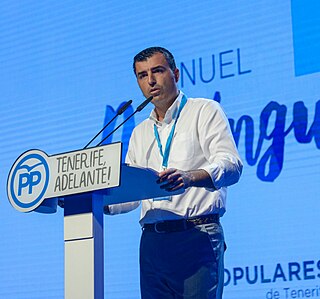
Manuel Domínguez González is a Spanish People's Party politician. He has been a town councillor (2003–) and the mayor (2011–) of Los Realejos in Tenerife, a member of the Congress of Deputies (2009–2011) and the Parliament of the Canary Islands (2019–).
















